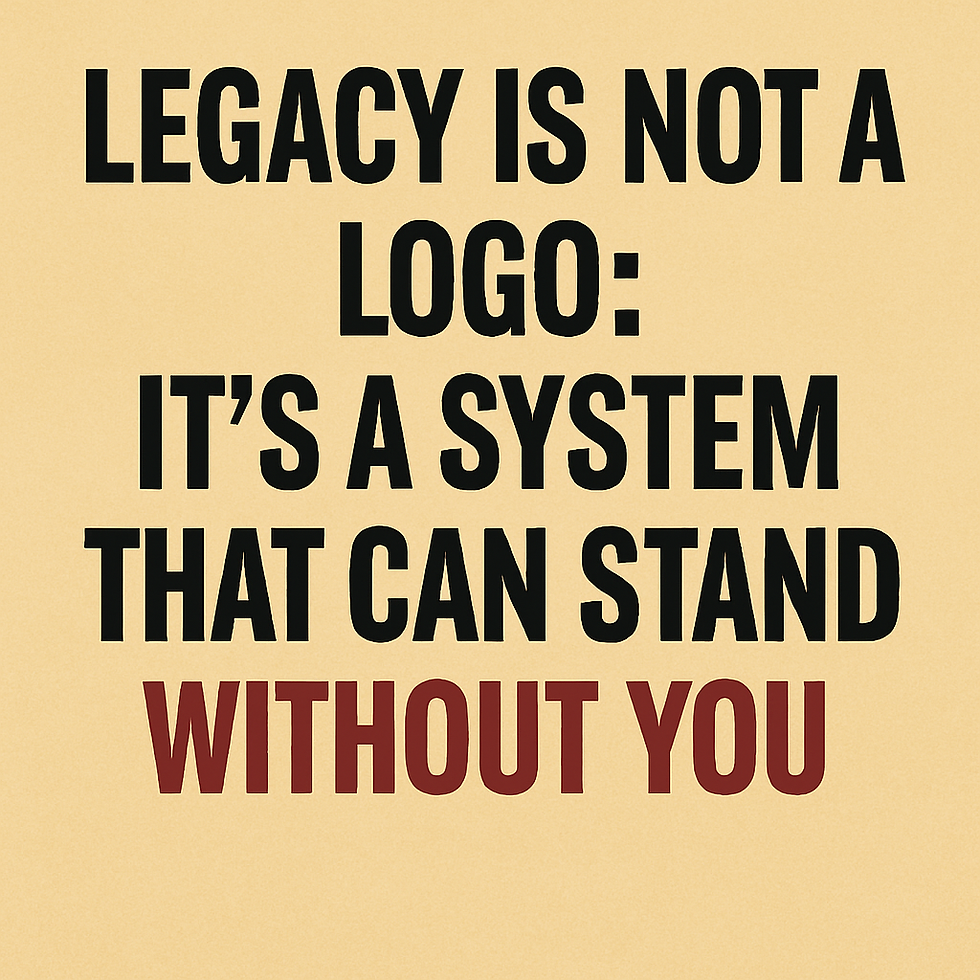Legacy Is Not a Logo: It’s a System That Can Stand Without You
- Raye Patrice
- Jun 23, 2025
- 3 min read

Legacy gets thrown around a lot, but most people are building hype, not longevity.
For Black women in business, legacy isn’t just about how successful we become it’s about what survives us, not what we leave behind emotionally, but what we leave in order. What good is a business, a brand, or an empire if it dies the moment you’re not in the room?
I’ve seen this up close in my own family. My grandmother was that woman in our community. In 1974, she started an adult home, and it wasn’t just a business, it was a legacy in motion. She was deeply respected, successful in her own right, and a pillar in our community. People trusted her, admired her, and she built something that truly made a difference. But when she passed, that business that foundation she worked so hard to build was shut down within six to 9 months. Not because it wasn’t thriving. But because no one knew how to run it without her. No one had the keys. No one had the plan.
That moment stuck with me. It still does. Because it wasn’t just the loss of a woman
it was the loss of everything she built. And it taught me a lesson that most people don’t learn until it’s too late. If your business can’t run without you, it’s not built for legacy.
Too many of us are making money and calling it wealth. We’ve got good branding, loyal clients, and big goals but no SOPs. No documentation. No systems. And when everything lives in your head, your inbox, or your personality, you’re not building a business. You’re building a bottleneck. You’re creating something that only works as long as you do.

Legacy means that if life shifts if you get sick, take a step back, or transition unexpectedly what you’ve built can keep going. It means your children, your partner, or your family have more than memories and a folder of old invoices. They have a plan. They have access. They have options. Even if they don’t want to run the business themselves, they can still own it, hire someone to operate it, or use it to generate income. That’s the difference between passing on ownership and passing on a burden.
We don’t talk about this enough in our culture. Too often, Black women are told to work hard, push through, and hold everything down but we’re not taught how to pass it on. We build from scratch, and we die with the blueprint in our heads. And the next generation? They’re left grieving and guessing. Starting from zero all over again.
So, if you’ve been telling yourself, “I’m building a legacy,” pause and ask: Is my business actually set up to outlive me? Could someone step in and know what to do? Is the backend organized? Are the finances clear? Is the vision written down?
You don’t have to wait until you’re older, richer, or more established to answer these questions. You can start documenting now. Start cleaning things up now. You can decide today to lead your business like a CEO, not just a hustler. The truth is, legacy isn’t about how long you work it’s about how well you leave things behind.
Honestly, I’m not telling you what I think. I’m telling you what I know. Because I’ve watched it happen. And I refuse to let the women I serve go out the same way brilliant, impactful, and overworked, with nothing left behind but potential.
We have the power to change the narrative. To build something that your family, your community, and your name can benefit from even when you’re not the one doing the work. But you’ve got to treat your business like it’s more than a job. More than a brand. It’s a legacy. And legacies require structure.
So, the next time you hear someone say, “I’m building this for my kids,” ask them and ask yourself will your kids even be able to use it?
If not, it’s time to move different. Because legacy isn’t what people remember you for. It’s what still works when you’re no longer here to explain it.



Comments